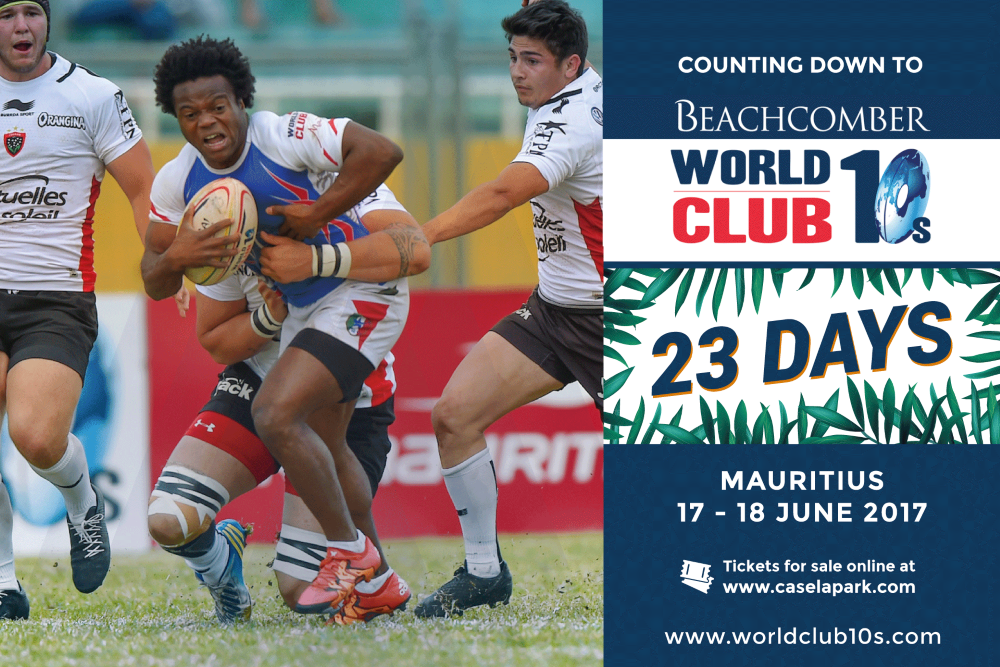Why 10s Could Be The Future Of Rugby
MAURITIUS, 24 MAY 2017 – Rugby’s global appeal is rapidly growing and 10s is the newest version of the game that is gaining traction to compliment the 15s code.
The third staging of the Beachcomber World Club 10s, to be held at the Anjalay Stadium in Mauritius, will again showcase why 10s has such huge appeal.
An increasing number of professional teams in the 15s code are looking to 10s as part of their season programmes and this year’s tournament in Mauritius sees eight top professional clubs in action.
The Vodacom Bulls and Toyota Cheetahs from South Africa, the Brumbies and Western Force from Australia, Harlequins from England, Kubota Spears from Japan, a combined Tsunami Pyrenees from France and a composite Africa Pacific Dragons team will all be in action on June 17 and 18.
What then is the attraction of 10s, as opposed to sevens? Carinat Sports Marketing managing director and former Bulls and Springbok coach Heyneke Meyer has an idea.
“I was a bit sceptical at first, but having seen it, I immediately saw the benefits as a part of a 15s programme, but also as a stand-alone code,” Meyer says.
“If we can compare it to cricket, 15s is like Test cricket, which is for the purist. Sevens is a bit like T20 cricket, but in rugby terms, it is becoming even more specialised. And 10s is like 50-over cricket.
“Sevens players at the elite level are now fully committed to the code. In the past sevens was used as pre-season fitness and skills training for 15s. That is no longer the case.
“Top sevens players have a different physiological makeup – they are generally smaller, lighter and faster due to the demands of that code than they would be if they played 15s. It’s almost an entirely different sport to rugby as we know it.
“There is the strategy, but scrums and lineouts are peripheral aspects of the code and one line break usually leads to a try.
“So what I like about 10s is that you still have those core elements of 15s – if you don’t have a good scrum and lineout you will struggle – but there is also space on the field.
“It’s also a game that requires great skill, tactical knowledge and a good appreciation of the core principles of rugby.
“It’s a quick game and players have to be super fit, but they are more aligned physiologically with 15s than with sevens. A full-time a 15s player would find the switch to top level sevens rugby quite difficult in this era, but he wouldn’t have the same issues to switch to 10s.
“In 10s you still need a genuine prop and proper locks, as well as good backs. There is a nice balance.”
Meyer also believes that 10s provide a bit of relief for both players and spectators from the intensity of 15s and sevens tournaments around the globe.
“I believe that players are becoming tired of the relentless grind and pressure and the huge amount of games they have to play,” Meyer says.
“Spectators are also getting tired of seeing the same thing, every season.
“I believe that 10s will grow into an important version of the sport, because it gives rugby players at an elite level, the chance to have some fun again.”
The Beachcomber World Club 10s is fully sanctioned by World Rugby, Rugby Afrique and Rugby Union Mauritius.
Related Posts
« Blitzboks give back in trophy roadshow NZR saddened by death of Bevan Moody »


















